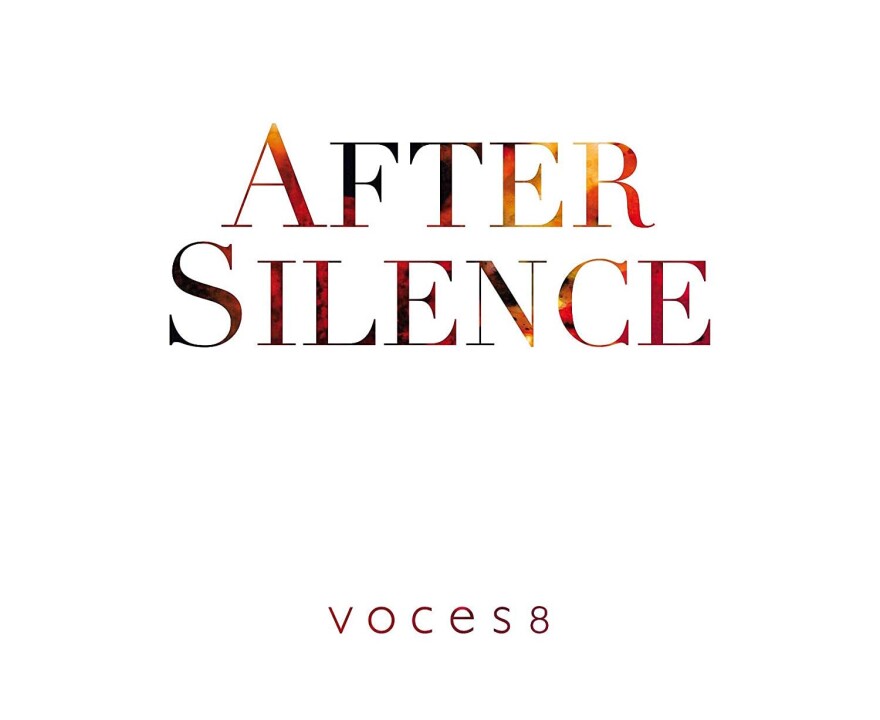November 22, 2020. The renowned British vocal ensemble VOCES8 celebrates its 15th anniversary with a gift to the musical world: After Silence, a double-CD set that embraces the themes of Remembrance, Devotion, Redemption, and the elemental force of Nature. The eight singers of VOCES8 bring to life repertoire from the Renaissance to contemporary times.
The album’s title, “After Silence,” refers to British writer Aldous Huxley’s essay “The Rest is Silence,” in which he says, “After silence, that which comes nearest to expressing the inexpressible is music.”
Under the direction of co-founder Barnaby Smith, the beauty of sound created by VOCES8 expresses a huge range of style and emotion. Their technique as a choir enables all eight voices to sound like a single instrument, with the depth and dynamic control of a fine orchestra.
The early Baroque is represented on the album by Orlando Gibbons’ “Drop, drop, slow tears,” and a stunning rendition of Monteverdi’s setting of Scipione Agnelli’s sestina, “Lagrime d’amante al sepolcro dell’amata” (Tears of the lover at the tomb of the beloved.)
In J.S. Bach’s “Jesu bleibet meine Freude” from Cantata 147, and the whole of Cantata 150, “Nach dir, Herr, verlanget mich,” the skill of each individual singer is apparent, in this intensely polyphonic, quickly moving writing that we normally hear sung by larger forces.
Some of the most moving selections have a meditative quality: the Russian Orthodox liturgical sound of Pavel Tschesnokoff’s "Spaseniye, sodela," Latvian composer Eriks Esenvald’s “Long Road,” Stephen Paulus’ “The Road Home,” Arvo Part’s “The Deer’s Cry,” Eric Whitacre’s “”A Boy and a Girl” and “Sleep.”
Two world-premiere recordings, commissioned by VOCES8 are included in the album. Jonathan Dove’s 2019 work gives contemporary voice to the 1633 poem by George Herbert, “Vertue,” reminding us that “Onely a sweet and vertuous soul/Like season’d timber, never gives;/But though the whole world turn to coal,/Then chiefly lives.” Swedish composer Marten Jansson’s “An Elemental Elegy” (2019) addresses the devastating effects of climate change, and earth’s resilience.
VOCES8 gives pristine, unhurried interpretations of music by Gabriel Fauré, Sir William Harris, Sir Charles Hubert Parry, and Gustav Mahler (an arrangement of the famous Ruckert lied, “Ich bin der Welt abhanden gekommen.”)
Perhaps the wisest and wittiest of the compositions on the album is also the longest: English composer Benjamin Britten’s "Hymn to St. Cecilia.” Benjamin Britten’s birthday was November 22nd, St. Cecilia’s Day, and Britten had for many years wanted to write an ode to the patron saint of music. A sojourn to America led Britten to the perfect text in 1941, when his friend W.H. Auden penned his “Anthem for St. Cecilia’s Day" for Benjamin Britten.
Britten completed his choral ode in America, but as WW II unfolded, he and his partner Peter Pears decided to head back home to England in 1942. The manuscript was confiscated by U.S. customs, who feared it contained some kind of military code. Britten had to quickly re-create the score, at sea, on the trip back to England. Fortunately, the music re-surfaced in his mind unscathed, and his music immortalizes Auden’s invocation: “Blessed Cecilia, appear in visions/To all musicians, appear and inspire:/Translated Daughter, come down and startle/ Composing mortals with immortal fire.”
In After Silence, VOCES8 sings, startles with their vocal perfection, and inspires.


